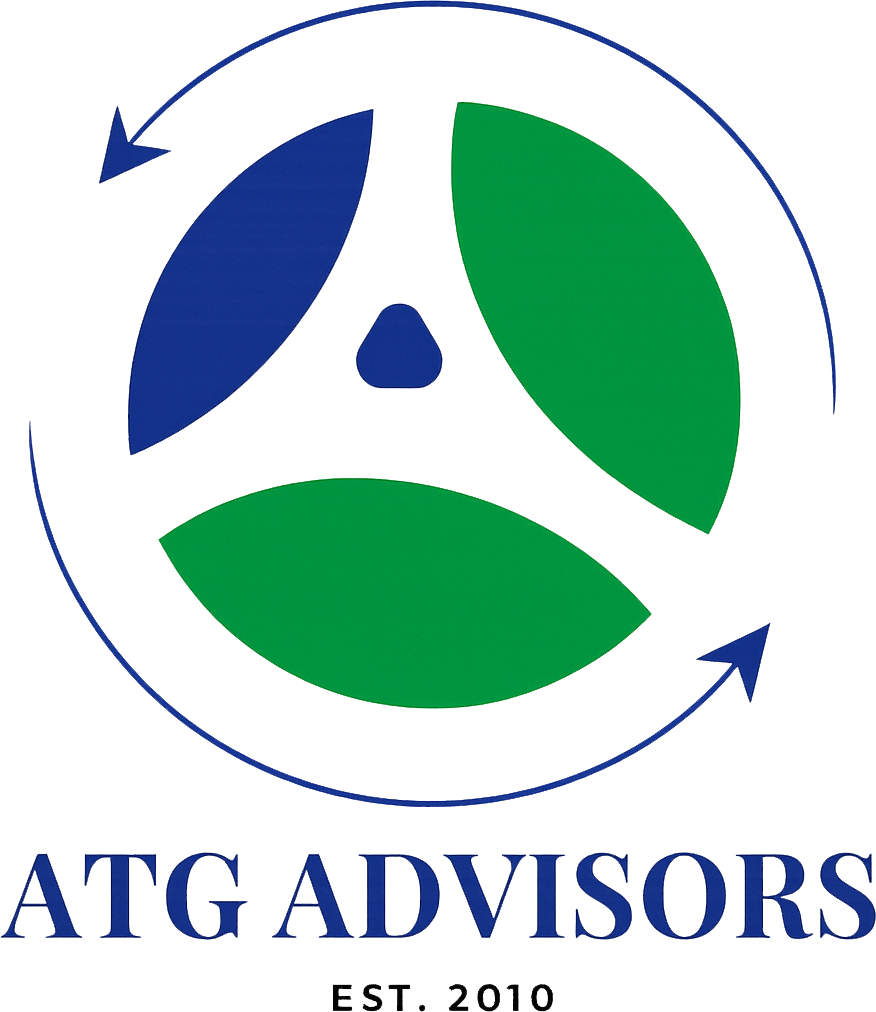Tax Filing Services
1040 – Individual Income Tax Return
What It Is:
The IRS Form 1040 is the main tax form filed by individuals to report their personal income, deductions, and credits. It includes information from wages (W-2s), interest (1099-INT), dividends, business income, and capital gains.
Who It’s For:
- U.S. residents earning wages, investment income, or self-employment income
- Individuals with dependents or qualifying credits (like Child Tax Credit)
- High-net-worth individuals with complex income sources
What ATG Provides:
Filing of federal and state returns
- Tax planning for next year based on this year's data
- Audit support and IRS correspondence if needed
- Optimization for itemized deductions, credits, and withholding strategy
Schedule C – Profit or Loss from Business (Sole Proprietor)
What It Is:
Schedule C is attached to Form 1040 and reports business income and expenses for sole proprietors and single-member LLCs.
Who It’s For:
- Freelancers and gig workers
- Consultants, coaches, and service professionals
- E-commerce and drop-shipping businesses
What ATG Provides:
- Accurate bookkeeping review and expense classificatio
- Strategic guidance on maximizing deductions
- Self-employment tax calculations
- Guidance on converting to S Corp (when eligible) for tax savings
Schedule E – Supplemental Income and Loss
Describe the item or answer the question so that site visitors who are interested get more information. You can emphasize this text with bullets, italics or bold, and add links.Schedule D – Capital Gains and Losses
What It Is:
Used to report gains or losses from investments like stocks, bonds, mutual funds, cryptocurrencies, and real estate sales.
Who It’s For:
Traders and long-term investors
Clients with inherited or gifted assets
Individuals engaging in tax-loss harvesting
What ATG Provides:
- Cost basis analysis and gain/loss calculation
- Strategic offsetting of capital gains with losses
- Support with crypto transactions and 1099-B reconciliations
- Tax planning for timing of future sales
1120 – U.S. Corporation Income Tax Return (C Corp)
What It Is:
Required for C corporations, this form reports all income, expenses, credits, and tax liabilities for the entity itself.
Who It’s For:
- or-profit corporations taxed separately from their owners
- Businesses with retained earnings and reinvestment strategies
- Startups attracting venture capital or issuing stock
What ATG Provides:
- Full corporate tax preparation and e-filing
- Calculation of deferred taxes and net operating losses
- Year-end planning to reduce corporate tax liabilities
- Filing of estimated taxes and Form 1125-A/1125-E schedules
1120S – U.S. Income Tax Return for an S Corporation
What It Is:
This return is for businesses that elect to pass corporate income through to shareholders via K-1s, avoiding double taxation.
Who It’s For:
- Small to midsized companies seeking tax efficiency
- Single or multi-owner businesses with active involvement
- LLCs that have elected to be taxed as an S Corp
What ATG Provides:
- Preparation of the 1120S and supporting shareholder K-1s
- Payroll and reasonable compensation planning
- Entity classification election filings (Form 2553)
- Quarterly tax planning for owner distributions
990 – Return of Organization Exempt From Income Tax
What It Is:
Form 990 is used by tax-exempt organizations to report financials, mission activity, and compliance with IRS regulations.
Who It’s For:
- Public charities, private foundations, and religious nonprofits
- Grant-funded organizations and fiscal sponsors
- Organizations seeking transparency for donors and funders
What ATG Provides:
- Filing of 990, 990-EZ, or 990-N based on size
- Schedule B, A, and compliance with public support tests
- Audit support and board policy documentation review
- Annual filing calendar and compliance checklist
W-2 / 1099 Filing – Employee & Contractor Reporting
What It Is:
Federal and state-mandated wage statements for employees (W-2) and contractors (1099-NEC/MISC), due by January 31 each year.
Who It’s For:
- Employers with staff or outsourced teams
- Contractors or businesses paying freelancers
- Clients seeking payroll tax compliance
What ATG Provides:
- Preparation and e-filing of W-2s and 1099s
- TIN matching and error correction
- Delivery of copies to recipients and IRS/SSA
- Classification audits and penalty avoidance strategy
Sales & Use Tax Filings
What It Is:
Monthly, quarterly, or annual filings required by states and some counties to remit tax collected from product or service sales.
Who It’s For:
- Retailers and wholesalers (in-store or online)
- Service businesses with taxable services in certain states
- Companies selling across multiple states or with nexus
What ATG Provides:
- Nexus analysis and sales tax registration in applicable jurisdictions
- Automated filing in all 50 states if needed
- Reconciliation with POS, e-commerce, and merchant systems
- Audit prep and support if audited by state taxing authorities
County Business Property & Local Tax Returns
What It Is:
Local jurisdictions often require reporting of business personal property (furniture, equipment, software, etc.) for annual taxation.
Who It’s For:
- Brick-and-mortar businesses
- Equipment-heavy or warehouse-based companies
- Any entity receiving property tax notices from county officials
What ATG Provides:
- Valuation and reporting of depreciable assets
- Local return preparation (e.g., Charlotte-Mecklenburg Business Personal Property Return)
- Protest or appeal filings when overassessed
- Local tax calendar management and reminders

